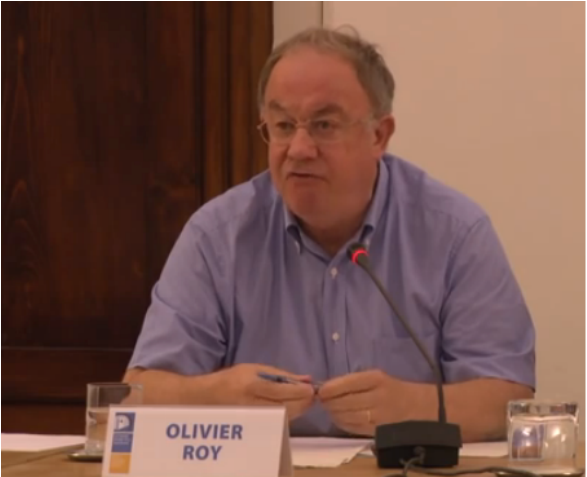Two weeks ago I have visited a Robert Schumann Center lecture by Prof Olivier Roy with the bold title: "How to Think About Contemporary Middle East"
Islam as an explanation for social dynamics and processes is fundamentally always a culturalist approach to social sciences. According to Prof. Roy this was the blind spot of contemporary political science when dealing with the Middle East. In light of this he was calling for more small-n case driven and fieldwork based social science research on the region, which is more sensitive to culturalist foundations and roots of social and political phenomena.
Secondly, Roy made a good point with regard to the interactivity and the interdependence between social science researchers working on the Middle East and the political leaders in the region and their advisors. Bascically he argued, that a lot of staff and even leaders themselves in the region have studied and read the contemporary scientific and semi-scientfiic journalistic and policy related literature on the Middle East. He implied that partly dynamics can be explained by a mechanism that ultimately works like a self-fulfilling prophecy.
Moving on to current issues in Middle Eastern Societies he argued that the Israel-Palestinian conflict can no longer be labelled the Middle East conflict because it losts its relevance across the region. As an example he mentioned that the largest anti-war protests regarding the latest escalation have been held in Europe and in the United States not in Arab countries. Furthermore he said that Pan-arabism and Pan-islamism are the crucial issues for the Middle Eastern countries at the moment. He thus claimed a discrepancy between the mainstream western media and what the current issues in the Middle East.
He furthermore briefly mentioned his last books main thesis that political islam is a failure mentioning the examples of Ennahda and the Muslim Brotherhood in Egypt. Without having read the book I have to admit that this argument did not quite strike me as convincing. It might be true that political islam as a larger phenomenon in the region is facing certain challenges but besides the Egyptian case I think predicting the failure of political islam might be a bit premature.
Lastly he mentioned the current developments in Syria and Iraq and the rise of ISIS as a result of opportunity through limited statehood capacities in the region and the decline of support for Al Qaeda over the last decade. Later in the following discussion Roy also mentioned that he predicts the demise of ISIS as a quasi state organization due to the international efforts to bring it down and its decline to a decentralized terrorist group similiar ot Al Qaida. However he was sceptical about a fast defeat resulting from the military support of opponents and airstrikes. In this point I agreed with the analysis of Roy on the situation in Syria and Iraq.
Last but not least I just want to mention one methodological remark made by Donatella Della Porta during the discussion. She mentioned that some regional and area studies scholars focus to narrowly on their cases and hence oftentimes fail to account for underlying regional or transnational developments, processes and trends. Her reply could be understood in defence of comparatavist social scientists that were cririticized by Olivier Roy for their lack of local knowledge and cultural sensitivity when dealing with the Middle East.
Besides the event I am very happy that a first collaboration with a researcher from the EUI is already on the way. Johanne Kübler is a fourth year PhD researcher working on the blogosphere and the role of the diaspora in political debates in blogs around the uprisings in Northern Africa. Together we are working on a paper project analyzing the transformation process in Tunisia four years after the ousting of Ben-Ali.
Furthermore I am collaborating with Ulrich Krotz as an associate fellow in the Europe in the World programm on matters of political prerogatives of the Arab Uprisings and its trajectories for European policy makers and the European Foreign Policy agenda.
Throughout November and December I will have the opportunity to present parts of my dissertation and a paper project here at the EUI in various working groups and colloquia. I will try to expose my self to a wide array of scholars working here in order to gain feedback, comments and critique from different fields. This is mainly driven by the fact that with my topic I am sitting a bit in between the chairs at the EUI . Thus I will have one presentation in the EU in the World programm organised by Ulrich Krotz presenting my dissertation prospectus. Similiarly I will present this prospectus in the COSMOS colloquium organized by Donatella Della Porta. Furthermore I will be presenting a current paper project in the International Relations Working Group organized by Jennifer Welsh and in the Middle Eastern Working Group headed by Olivier Roy.

 RSS Feed
RSS Feed
